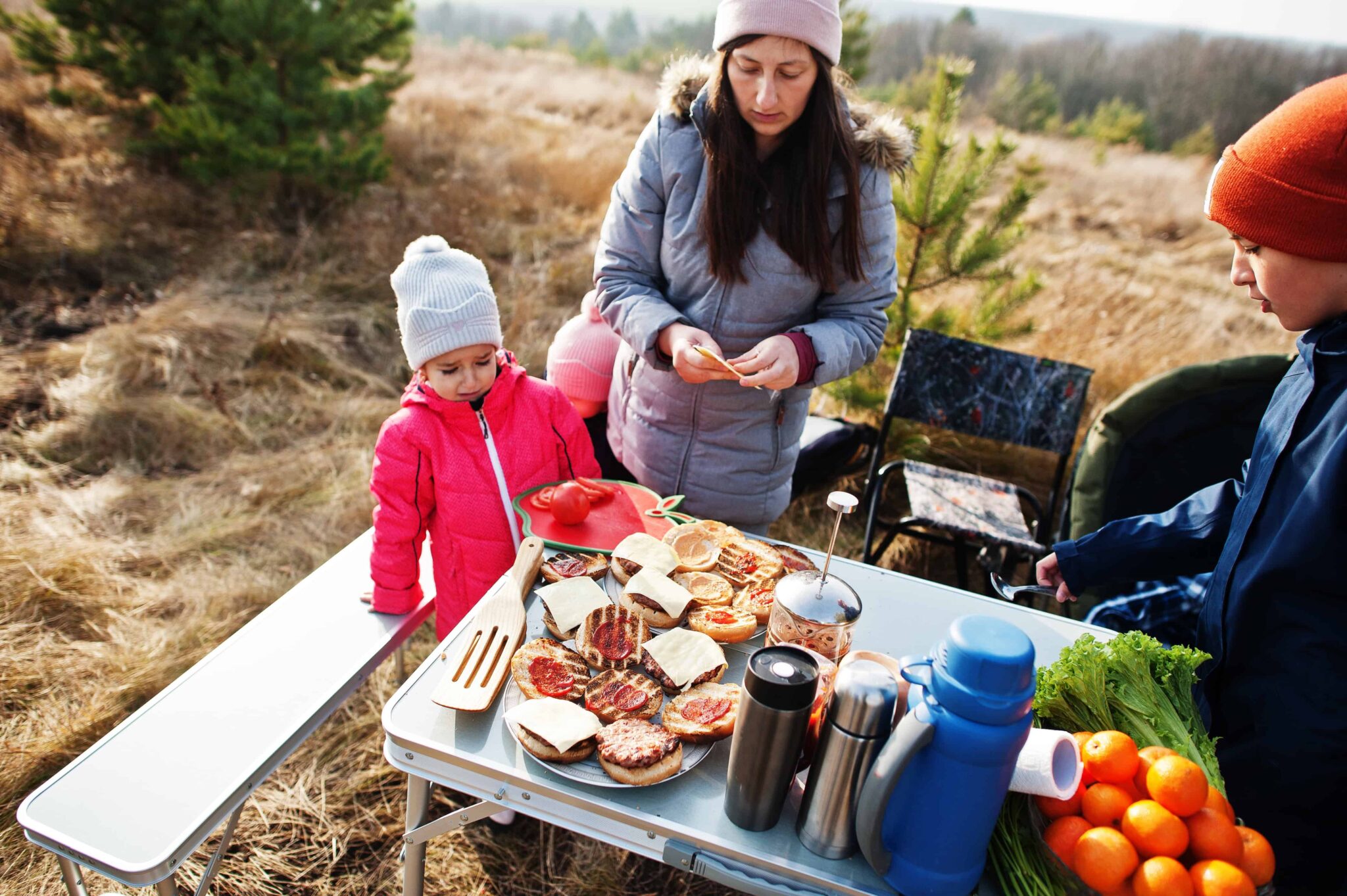Camping is a wonderful way to connect with nature, unwind, and enjoy the great outdoors. But it’s important to do so responsibly to protect our beautiful environments. Eco-friendly camping ensures that we leave nature as we found it, preserving it for future generations.
In this guide, we’ll share sustainable camping tips and a leave no trace camping approach to help you enjoy your adventures while caring for the planet.
Understanding Eco-Friendly Camping
What is Eco-Friendly Camping?
Eco-friendly camping, also known as green camping, focuses on minimizing your impact on the environment. It involves making choices that protect natural resources, reduce waste, and support conservation efforts. By adopting sustainable practices, campers can enjoy nature responsibly and help maintain the beauty of our wilderness areas.
The Importance of Sustainable Camping
Camping has a minimal footprint when done correctly, but irresponsible actions can harm ecosystems. Sustainable camping helps preserve wildlife habitats, keeps trails clean, and ensures that natural areas remain pristine. It also promotes awareness and respect for the environment, encouraging others to adopt similar practices.
Sustainable Camping Tips

Plan Ahead
Proper planning is key to eco-friendly camping. Research your campsite and understand the local regulations. Knowing what to expect helps you prepare better and reduce your environmental impact.
- Check Permits: Some campsites require permits. Make sure to obtain them in advance.
- Weather Forecast: Understanding the weather helps you pack appropriately and stay safe.
- Leave No Trace Guidelines: Familiarize yourself with these principles to ensure responsible camping.
Choose the Right Campsite
Selecting an appropriate campsite is crucial for minimizing your impact.
- Use Designated Sites: Camp in established areas to avoid disturbing wildlife and plant life.
- Avoid Fragile Areas: Stay away from sensitive ecosystems like wetlands and alpine zones.
- Camp Away from Water Sources: Set up camp at least 200 feet from lakes and streams to protect water quality.
Reduce, Reuse, Recycle
Managing waste effectively is a significant part of sustainable camping.
- Pack Out What You Pack In: Bring reusable containers and bags to minimize trash.
- Use Biodegradable Products: Opt for biodegradable soaps and toiletries to lessen pollution.
- Recycle Properly: Separate recyclables from trash and dispose of them correctly.
Conserve Water and Energy
Being mindful of your resource use helps preserve them for the environment.
- Limit Water Usage: Use water sparingly for cooking and cleaning.
- Solar-Powered Devices: Utilize solar chargers and energy-efficient gadgets to reduce energy consumption.
- Efficient Lighting: Use LED lanterns and headlamps instead of disposable batteries.
Practice Minimal Campfire Use
Fire can be both a source of warmth and a potential hazard to the environment.
- Use a Camp Stove: Opt for portable stoves instead of building campfires.
- If You Must Make a Fire: Use established fire rings, keep fires small, and ensure they are completely out before leaving.
- Carry Firewood: Bringing your own firewood reduces the impact on local tree populations and prevents the spread of pests.
Leave No Trace Camping Practices

The Seven Principles of Leave No Trace
The Leave No Trace (LNT) principles provide a framework for responsible camping. Following these guidelines helps protect natural areas and ensures they remain beautiful for everyone.
- Plan Ahead and Prepare: Proper planning reduces the likelihood of accidents and minimizes environmental impact.
- Travel and Camp on Durable Surfaces: Stick to trails and established campsites to protect vegetation.
- Dispose of Waste Properly: Pack out all trash, leftover food, and litter. Use toilets or dig a cathole when necessary.
- Leave What You Find: Preserve the natural environment by not picking plants or disturbing wildlife.
- Minimize Campfire Impact: Use a camp stove, and if you make a fire, keep it small and ensure it’s completely out.
- Respect Wildlife: Observe animals from a distance and never feed them.
- Be Considerate of Other Visitors: Keep noise levels down and respect others’ space.
Applying Leave No Trace in Your Camping
Implementing the LNT principles makes your camping experience enjoyable and sustainable.
- Respect Trails: Stay on marked paths to prevent soil erosion and protect plant life.
- Manage Waste: Bring extra bags for trash and store food securely to avoid attracting wildlife.
- Care for Campsites: Leave your campsite as you found it, removing all traces of your stay.
Eco-Friendly Camping Gear

Sustainable Materials
Choosing gear made from sustainable materials reduces your environmental footprint.
- Recycled Fabrics: Look for tents, backpacks, and clothing made from recycled materials.
- Natural Fibers: Opt for gear made from organic cotton, hemp, or bamboo, which are biodegradable and less polluting.
- Durable Equipment: Invest in high-quality gear that lasts longer, reducing the need for replacements.
Energy-Efficient Devices
Using energy-efficient gear helps conserve resources during your trip.
- Solar Chargers: Harness the power of the sun to charge your devices.
- LED Lighting: LED lanterns and flashlights use less energy and last longer than traditional bulbs.
- Portable Power Banks: Carry rechargeable power banks to keep your gadgets running without relying on disposable batteries.
Reusable and Biodegradable Products
Minimizing single-use items is a key aspect of eco-friendly camping.
- Reusable Containers: Bring reusable water bottles, coffee cups, and food containers to cut down on waste.
- Biodegradable Soaps: Use soaps that break down naturally without harming the environment.
- Cloth Towels: Replace disposable paper towels with reusable cloth ones for cleaning up.
Responsible Behavior in Nature

Respect Wildlife
Wildlife plays a vital role in maintaining the balance of ecosystems. Showing respect ensures their safety and well-being.
- Observe from a Distance: Use binoculars to watch animals without disturbing them.
- Do Not Feed Animals: Feeding wildlife can disrupt their natural behaviors and diet.
- Store Food Securely: Keep food in sealed containers or bear-proof lockers to prevent attracting animals.
Minimize Fire Impact
Fires can have lasting effects on the environment if not managed properly.
- Use Established Fire Rings: If you must have a fire, use designated areas to contain it.
- Keep Fires Small: A small fire reduces the risk of wildfires and minimizes resource use.
- Extinguish Completely: Pour water over the fire, stir the ashes, and ensure everything is cold before leaving.
Safe and Sustainable Hiking Practices
Hiking responsibly is part of eco-friendly camping.
- Stay on Trails: Avoid creating new paths to protect vegetation and prevent erosion.
- Carry a Map and Compass: Navigating without straying off trails helps preserve the environment.
- Pack Light: Carry only what you need to reduce your impact on the trails and the surrounding area.
Additional Sustainable Camping Tips
Use Eco-Friendly Transportation
Getting to your campsite sustainably reduces your overall carbon footprint.
- Carpooling: Share rides with friends to decrease the number of vehicles on the road.
- Public Transportation: Use buses or trains to reach your destination when possible.
- Biking: If feasible, bike to your campsite for a low-impact arrival.
Support Local and Sustainable Businesses
Choosing to support eco-friendly businesses benefits the local economy and environment.
- Buy Locally Made Gear: Purchase equipment from local manufacturers to reduce transportation emissions.
- Use Local Services: Choose eco-friendly tour guides and local accommodations to support sustainable practices.
- Respect Local Cultures: Learn about and honor the traditions and rules of the area you’re visiting.
Educate Yourself and Others
Staying informed and spreading awareness can amplify your positive impact.
- Learn About Conservation: Understanding environmental issues helps you make better decisions while camping.
- Share Your Knowledge: Encourage others to adopt sustainable camping practices by sharing your experiences.
- Participate in Clean-Ups: Join local efforts to clean trails and campsites, helping to maintain the natural beauty of your favorite spots.
Conclusion
Eco-friendly camping is a rewarding way to enjoy the outdoors while protecting the environment. By following sustainable camping tips and adhering to leave no trace principles, you can make a positive impact on nature and ensure that these beautiful places remain intact for future campers.
Ready to make your next camping trip more sustainable? Start by planning with eco-friendly practices in mind and share these tips with your fellow campers.
Together, we can enjoy the beauty of nature responsibly and keep our outdoor spaces pristine for generations to come.



